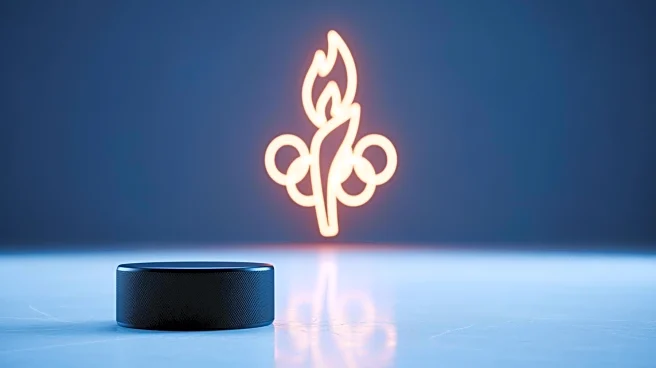What's Happening?
Barry Bonds and Roger Clemens, two of the most prominent figures in baseball history, are being considered for induction into the Baseball Hall of Fame in 2026. Both players, who were previously on the Baseball Writers'
Association of America (BBWAA) ballot for ten years, failed to secure the necessary 75% of votes for induction. They are now on the Contemporary Baseball Era ballot, which is part of the Hall of Fame's Eras Committee process. This committee reevaluates players who have fallen off the BBWAA ballot. Bonds and Clemens are joined by other notable players such as Carlos Delgado, Jeff Kent, and Don Mattingly. The results of this ballot will be announced on December 7, 2025.
Why It's Important?
The potential induction of Barry Bonds and Roger Clemens into the Hall of Fame is significant due to their controversial careers marked by allegations of steroid use. Despite their impressive statistics, which include Bonds' seven MVP awards and Clemens' seven Cy Young awards, their association with performance-enhancing drugs has overshadowed their achievements. Their inclusion in the Hall of Fame would not only recognize their contributions to the sport but also spark discussions about the legacy of players linked to steroid use. This decision could influence how future players with similar controversies are evaluated for Hall of Fame consideration.
What's Next?
The Eras Committee, consisting of 16 members including Hall of Fame members, executives, and veteran media members, will vote on the Contemporary Baseball Era ballot. Candidates need 75% of the votes to be inducted. The outcome will depend on the composition of the panel and their views on the steroid era. If Bonds and Clemens receive more support from the panel, they could be inducted, potentially setting a precedent for other players with similar backgrounds.
Beyond the Headlines
The inclusion of Bonds and Clemens on the ballot highlights the ongoing debate about the impact of the steroid era on baseball's history. Their potential induction could lead to a reevaluation of the criteria for Hall of Fame eligibility, particularly concerning players with controversial pasts. This situation underscores the complex relationship between sports achievements and ethical considerations in professional baseball.









